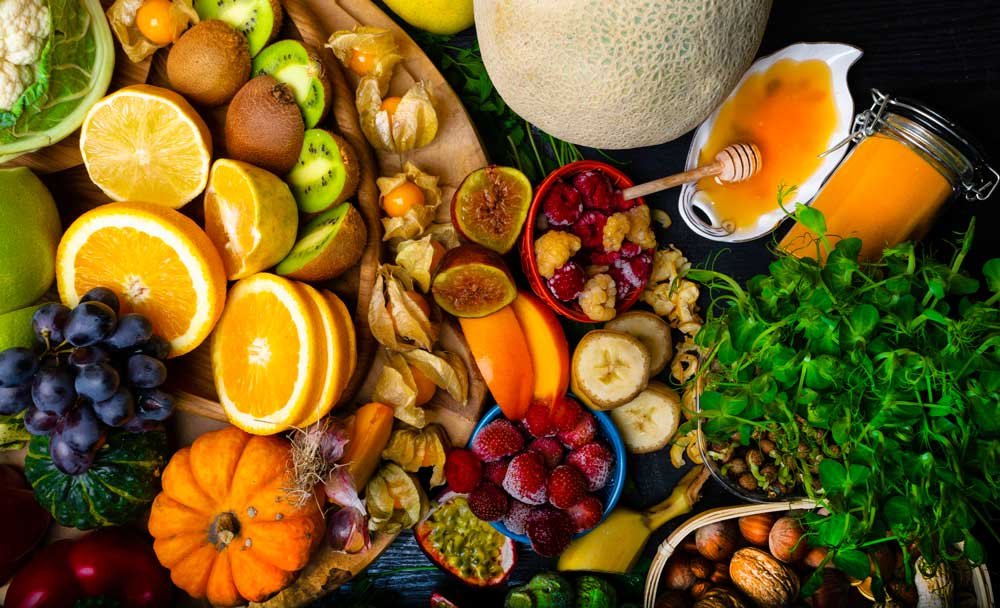You might be wondering how to strengthen your immunity against illnesses. Although boosting one’s immunity is a challenging task, there are a few recommended dietary and lifestyle modifications that can fortify your body’s defences against pathogens, or organisms that cause diseases.
Essential nutrients including vitamins (particularly A, C, D, and E), minerals (such zinc and selenium), and antioxidants can be obtained from a diet high in fruits, vegetables, whole grains, lean meats, and healthy fats. These nutrients shield the body from oxidative stress and enhance immune system performance.
You may strengthen your immune system’s resistance to disease and increase its resilience by adopting these routines into your daily routine. Keep in mind that consistency is key and that little adjustments made over time can have a huge impact on your overall immune system’s health.
Here are a few tips to boost your immunity naturally.

Maintain sleep schedule
Our lifestyle can often take a toll on our overall health. It is essential to give the body required rest and breaks every now and then. While doctors recommend seven to eight hours of sleep daily, it is crucial that one maintains stable sleep schedule. Therefore, make sure that every day, including weekends, you go to bed at a certain time and wake up at a set time. This will help to normalise your physique as well as your sleeping schedule.

Workout regularly
No matter what is the weather, make it a point to work out on a daily basis. If you are unable to venture outside, engage in some mild activity indoors. Another option is to make room for a sport in your regular routine. This will not only improve your health tremendously but also help build a network of like-minded individuals.

Immunity-boosting foods
Rich in nutrients and antioxidants, whole plant foods such as fruits, vegetables, nuts, seeds, and legumes may give you an advantage over harmful pathogens. The antioxidants in these foods help reduce inflammation by battling unstable substances known as free radicals, which can cause inflammation when they accumulate in your body in large quantities. Heart disease, Alzheimer’s disease, and several types of cancer are among the many illnesses that are associated with chronic inflammation.
The colony of beneficial bacteria in your stomach, known as your gut microbiome, is nourished by the fibre found in plant-based diets. Strong gut flora can boost immunity and prevent harmful germs from entering your body through the digestive system. Make sure to include immunity-boosting foods in your daily diet such as garlic, ginger, oats and barley, yoghurt and tomatoes.

Increase your water consumption
The many advantages of water are well known to us all. Increase your fluid intake in addition to water by including foods high in water in your regular diet such as strawberries, oranges, watermelons, and lettuce.
Minimise stress
Stress is an inevitable part of life but there are always constructive methods and ways to handle it. It can cause the hormone cortisol to be released, which can increase inflammation and actually suppress your immune system, decreasing its effectiveness. Numerous investigations have demonstrated that the people who reported the lowest levels of stress also had the lowest infection rates.
Quit bad habits
Smoking lowers immunity and raises the possibility of infection. Limit your alcohol intake because too much alcohol can damage your immune system.
Limit sugar
According to studies, processed carbohydrates and added sugars may be disproportionately linked to obesity and overweight. Additionally, obesity may make you more susceptible to illness. Reducing your sugar intake can help you lose weight and reduce inflammation, which lowers your chance of developing long-term health issues including type 2 diabetes and heart disease.

Vaccinate
It is not only feasible but also harmful to contract many infections at the same time. For example, if you got the flu on top of COVID, your medical condition would be far more complicated. There are already vaccines available to prevent against a number of illnesses, including pertussis, pneumonia, and the flu.
Herbal remedies
The immune system has historically been supported by a number of herbs and plant extracts, including echinacea, elderberry, and garlic. Before utilising herbal supplements, speak with a healthcare professional, particularly if you are taking medication or have underlying medical conditions.

Know your fruits and vegetables
A serving of fruit is defined as a half cup of fresh, frozen, or canned fruit that is concentrated in either water or 100% juice, or as a medium-sized piece of fruit, about the size of a tennis ball.
One cup of raw, green vegetables, half a cup of fresh, frozen, or canned veggies (look for those with ‘no added salt’ on their label), or half a cup of vegetable juice can all be considered servings of vegetables. Some healthy and delicious options include:
Vitamin A
• Cantaloupe
• Carrots
• Dairy products
• Eggs
• Fortified cereals
• Green, leafy vegetables
• Pumpkin
• Red peppers
• Sweet potatoes
Vitamin C
• Broccoli
• Brussels sprouts
• Cantaloupe
• Citrus fruits
• Kiwi
• Peppers
• Strawberries
• Tomatoes
Vitamin D
• Eggs
• Fish liver oil (such as cod liver oil)
• Fish (herring, mackerel, salmon, trout, tuna)
• Fortified products such as cereals, dairy products, orange juice, soy milk
Zinc
• Beans and peas
• Beef
• Dairy products
• Fortified cereals
• Nuts
• Poultry
• Seafood
• Whole grains